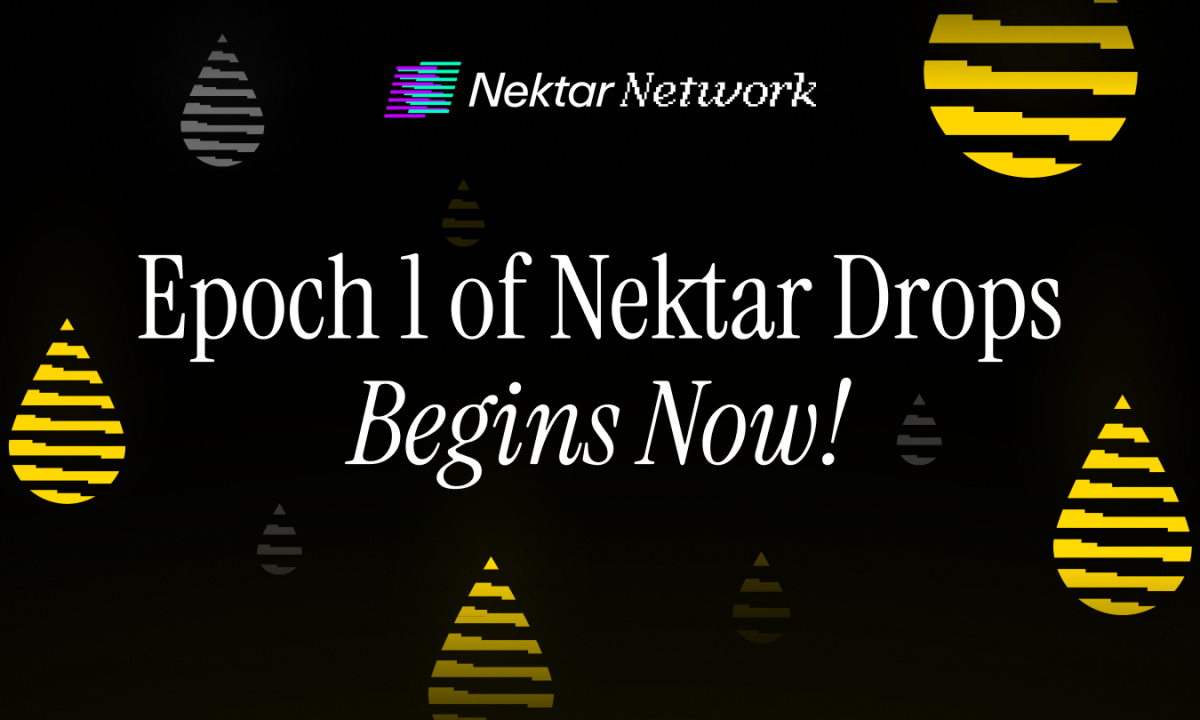
Table of Contents
- How does Bitcoin escrow work?
- The 4 Best Bitcoin escrow services: Examining top crypto escrow services for 2024
- 1. BTC Asia
- 2. Binance P2P Escrow Service
- 3. Paxful
- 4. Escrow agents
- Do buyers or sellers typically pay the escrow fee?
- The bottom line: There are plenty of options for those in need of Bitcoin escrow services
Bitcoin escrow services facilitate secure transactions involving BTC. Acting as neutral mediators, escrow services hold the funds in a secure account (called an "escrow" account) until the agreed-upon conditions between the buyer and the seller are met.
Using a Bitcoin escrow service when conducting Bitcoin transactions with an untrusted third provides an additional layer of protection and safeguards against potential scams.
In this article, we are going to describe how Bitcoin escrow works and examine the best Bitcoin escrow services available on the market today.
List of trusted Bitcoin escrow services in 2024:
- BTC Asia – Crypto escrow service provided with more than a decade-long track record
- Binance P2P Escrow Service – One of the largest P2P crypto marketplaces
- Paxful – Escrow services for Bitcoin and other crypto assets
- Escrow agents – Reputable individuals who facilitate crypto escrow for a small fee
How does Bitcoin escrow work?
Bitcoin escrow services provide a secure way to conduct transactions involving Bitcoin or other cryptocurrencies. They act as a neutral third party that holds the funds until the agreed-upon conditions between the buyer and the seller are met.
Escrow agents and service providers are especially important in peer-to-peer (P2P) transactions, where parties agree to use a trusted third party rather than relying on each other's honesty.
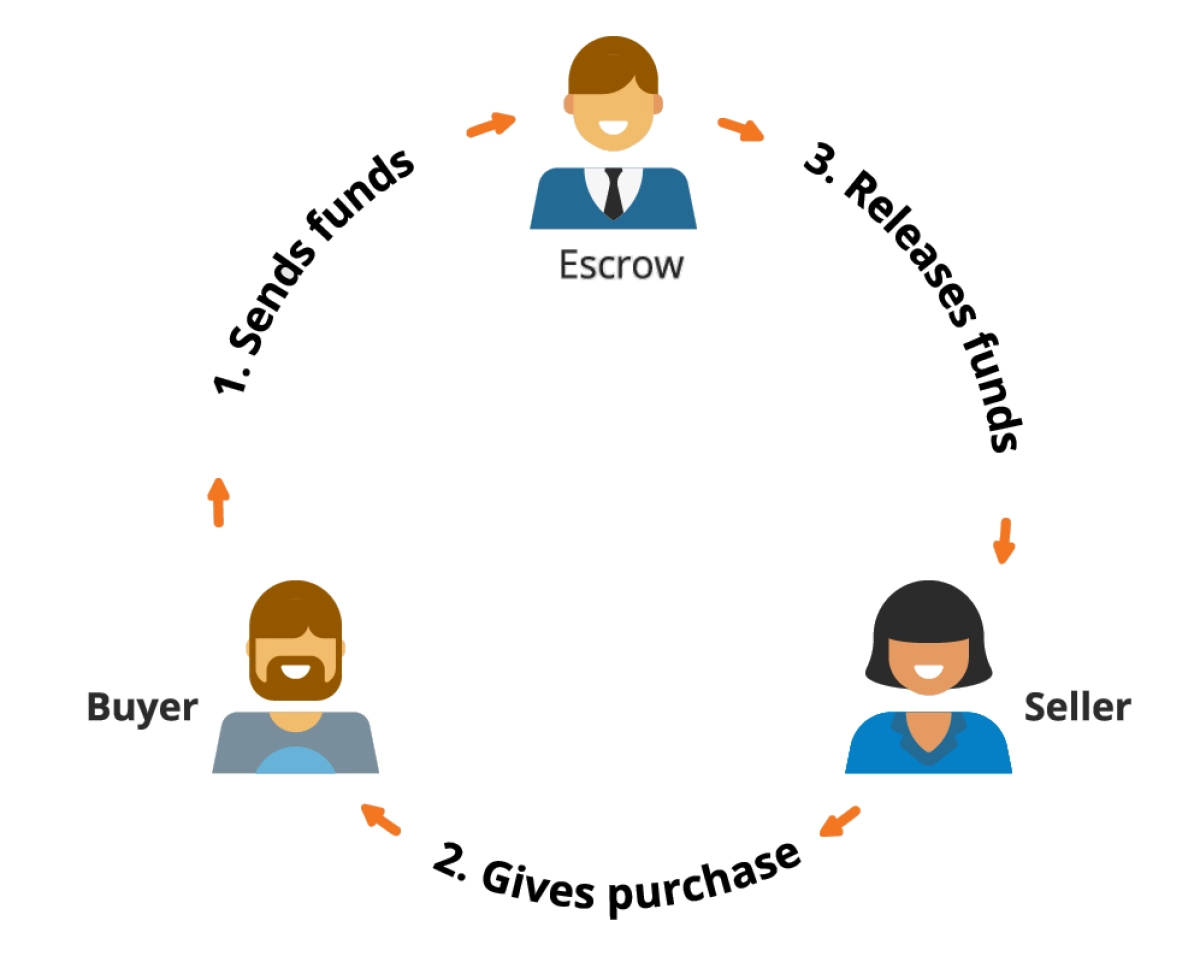
The seller sends Bitcoin to escrow, which is released to the buyer after the seller confirms the buyer has completed the transaction and sent the funds to buy BTC.
Here's a step-by-step explanation of how a typical Bitcoin escrow service works:
- Agreement: The buyer and the seller agree on the terms and conditions of the transaction, including the price, quantity, and any other specific requirements.
- Escrow setup: The buyer and the seller choose a reputable Bitcoin escrow service and create an escrow account. The service generates a unique BTC address associated with the transaction to escrow Bitcoin.
- Buyer's payment: The buyer sends the agreed-upon amount of Bitcoin to the escrow address provided by the service. The funds are locked in the escrow account and cannot be accessed by either party until the conditions are met.
- Seller's delivery: The seller proceeds with delivering the funds to the buyer as per the agreed-upon terms.
- Buyer's inspection: Upon receiving the funds, the buyer typically has a specified period to inspect and verify their satisfaction. If everything is in order, the buyer acknowledges the receipt.
- Release of funds: Once the buyer confirms the satisfactory completion of the transaction, they authorize the escrow service to release the funds to the seller. The escrow service then transfers the funds from the escrow account to the seller's designated Bitcoin address.
That was a high-level overview of how a Bitcoin escrow service works. It is worth noting that the process might be different between various escrow services. Also, if there are any issues that arise during the escrow process, the buyer and seller have a couple of options for how they can resolve the problems, either with the escrow service provider itself or some other neutral party as a mediator.
- Dispute resolution: If the buyer is not satisfied with the escrow transaction, they can open a dispute with the escrow service. The escrow service acts as a mediator and investigates the matter. If a resolution cannot be reached, the escrow service may involve a trusted third party or follow its own dispute resolution process.
- Refund or arbitration: In case the dispute is found in favor of the buyer, the escrow service may refund the funds back to the buyer. Alternatively, if the dispute resolution process involves arbitration, a neutral party will make a final decision on the distribution of funds.
Generally speaking, Bitcoin escrow services provide an added layer of security and trust to ensure that both buyers and sellers are protected during transactions involving Bitcoin. By holding the funds in escrow until the agreed-upon conditions and terms of the transaction are met, the risks of fraud and non-payment are reduced, providing peace of mind to both parties involved.
The 4 Best Bitcoin escrow services: Examining top crypto escrow services for 2024
With an explanation of how Bitcoin escrow works, let’s move on to examining the top Bitcoin escrow service providers in the industry. The ranking of these services is based on factors such as the length of time offering the product, security, and user satisfaction.
1. BTC Asia
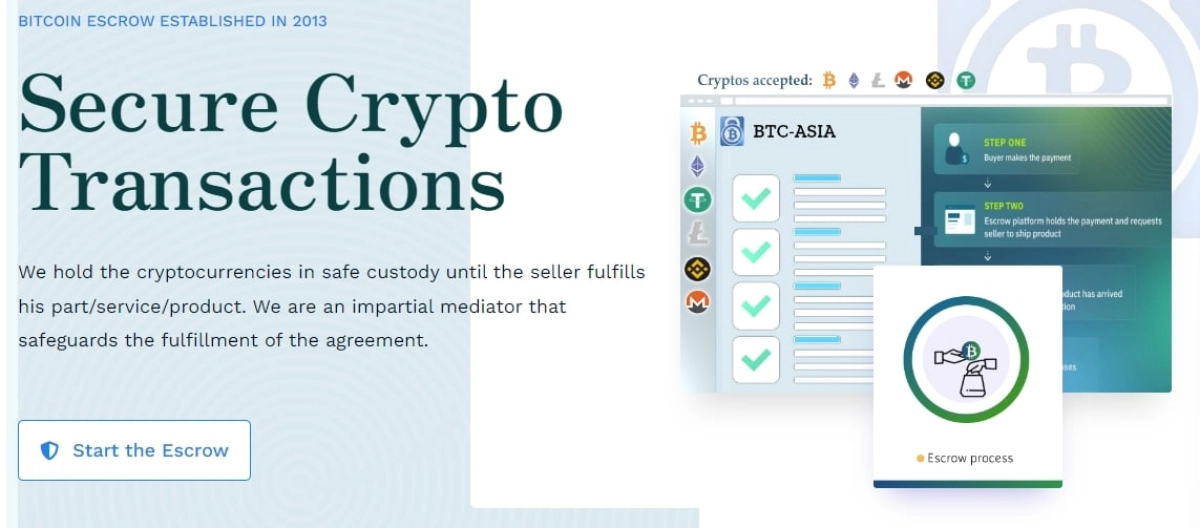
Headquartered in Singapore, BTC Asia is a Bitcoin escrow founded in 2013, offering a secure and reputable service in the crypto industry for more than a decade. BTC Asia constantly monitors transactions to identify potential scams, immediately flags suspicious activity, and takes the appropriate steps to protect its users. About 95% of funds escrowed by BTC Asia are held in cold wallets, and they are moved to hot wallets only after transactions are cleared.
BTC Asia charges a 1% fee for its services and a 5% fee if there are any disputes. The platform offers a great deal of flexibility and customizability, as users can set their own descriptions, prices, conditions, and deadlines. In addition to Bitcoin, BTC Asia supports Ethereum, Litecoin, Monero, BNB, and Tether escrows as well.
2. Binance P2P Escrow Service
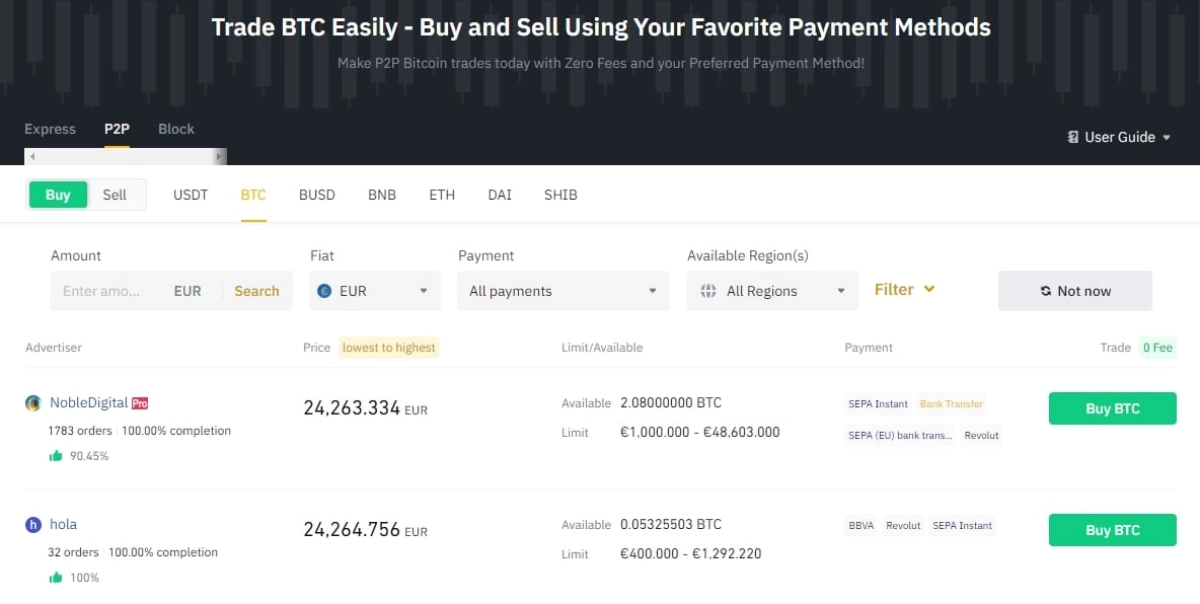
Binance P2P is one of the largest and most popular peer-to-peer crypto marketplaces, enabling users from all over the world to buy, sell, and trade cryptocurrencies amongst themselves. The platform supports BTC, BNB, ETH, SHIB, USDT, BUSD, and DAI, as well as dozens of local currencies and payment processors.
When buying or selling crypto for cash on Binance P2P, the escrow is used to store the funds until the transaction is cleared and agreed-upon conditions are met. The escrow mechanism is used to prevent incidents, theft, and scams. The process is carried out automatically whenever buying or selling crypto on Binance P2P. However, customer support can step in and resolve any issues if either the buyer or the seller doesn’t hold up their end of the deal. Binance P2P charges no fees for the escrow service or the P2P transactions taking place on the platform.
3. Paxful
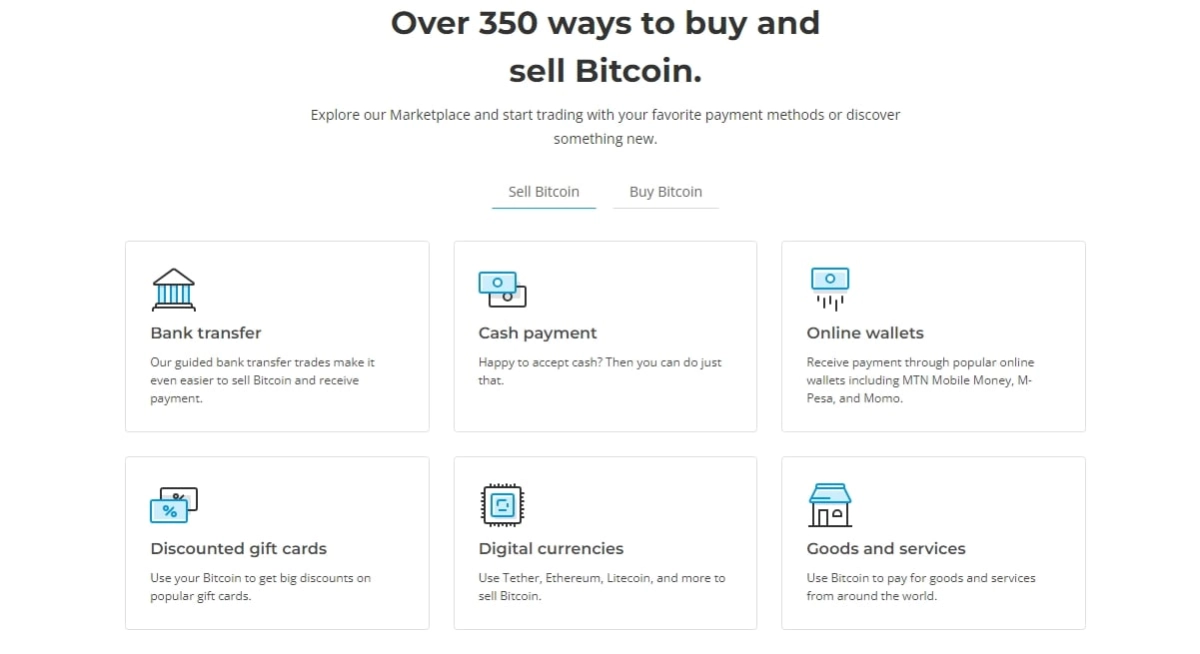
Paxful is a P2P cryptocurrency marketplace that supports the buying and selling of Bitcoin, USD Coin, and Tether. It supports bank transfers, cash payments, gift cards, and online wallets. Users can also choose to settle their transactions with goods and services like gold, game items, and Amazon Wishlist.
As a part of its peer-to-peer trading offering, Paxful deposits Bitcoin in escrow accounts until the parameters of the transaction are cleared. Once the payment to buy Bitcoin is completed and confirmed by the seller, the seller can release the funds from the escrow, which markets the completion of the trade.
4. Escrow agents
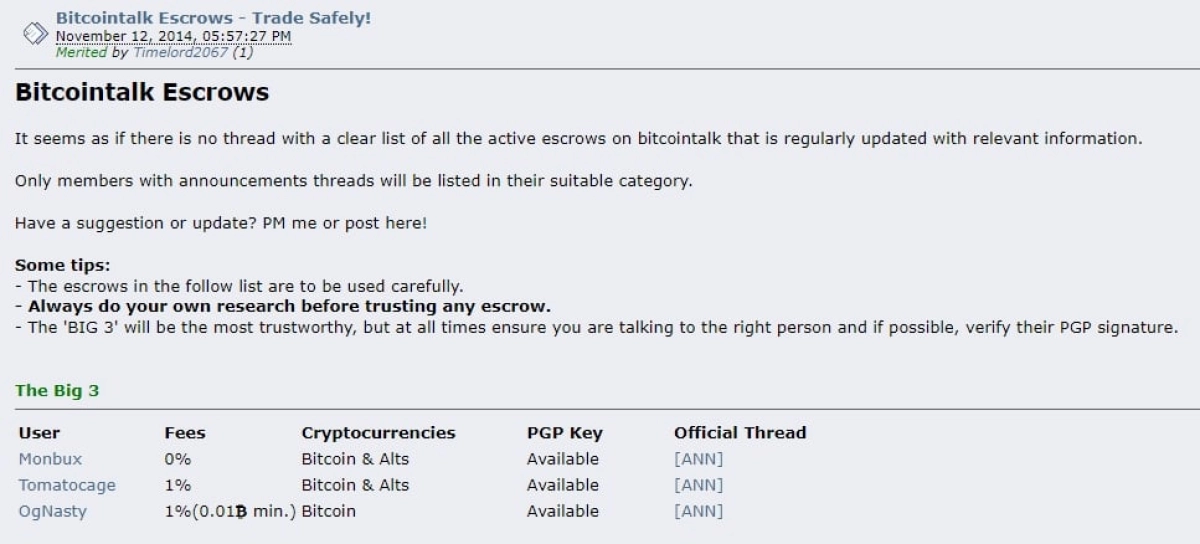
Another popular Bitcoin escrow option is escrow agents. These are reputable individuals who offer escrow services, usually for a fee of up to 1%. Escrow agents can be reached out to on popular forums and groups where other users can vouch for their trustworthiness.
One of the most popular repositories of active escrow agents can be found on the BitcoinTalk forum, the largest Bitcoin and crypto forum on the internet. You can check agent-specific escrow rates and supported cryptocurrencies in the thread. It is worth noting that each escrow provider has a slightly different way of handling stuff.
Do buyers or sellers typically pay the escrow fee?
The allocation of the Bitcoin escrow fee can vary depending on the agreement between the buyer and the seller. In practice, there is no fixed rule dictating who should cover the escrow fee. It is typically negotiable and can be influenced by various factors such as market practices, the nature of the transaction, and the parties' preferences.
In some cases, the buyer may be responsible for covering the escrow fee as part of the transaction cost. This approach is common when the buyer initiates the use of the escrow service to provide an extra layer of security and build trust.
On the other hand, the seller may agree to absorb the escrow fee as a cost of doing business. This is often seen in competitive markets where sellers aim to attract buyers by offering to cover the additional fees associated with the transaction.
The bottom line: There are plenty of options for those in need of Bitcoin escrow services
Bitcoin escrow services can be very useful for those who buy and sell Bitcoin directly from other users without exchanges acting as intermediaries. Since relying on a random online stranger’s trustworthiness is not exactly the best idea, escrow providers have emerged as neutral mediators that escrow funds and resolve disputes.
Once the funds are released from escrow, you might want to store your Bitcoin in one of the best crypto hardware wallets for maximum security. If you need your Bitcoin funds more frequently and value accessibility, low fees, and high transactional speeds over a small sacrifice in security, then check which are the best Bitcoin Lighting wallets you can use in 2024.
Disclaimer: This article is provided for informational purposes only. It is not offered or intended to be used as legal, tax, investment, financial, or other advice.
Read on CoinCodex Investment Disclaimer






